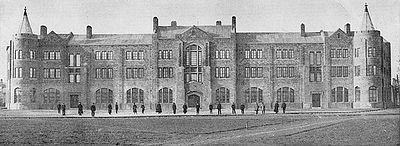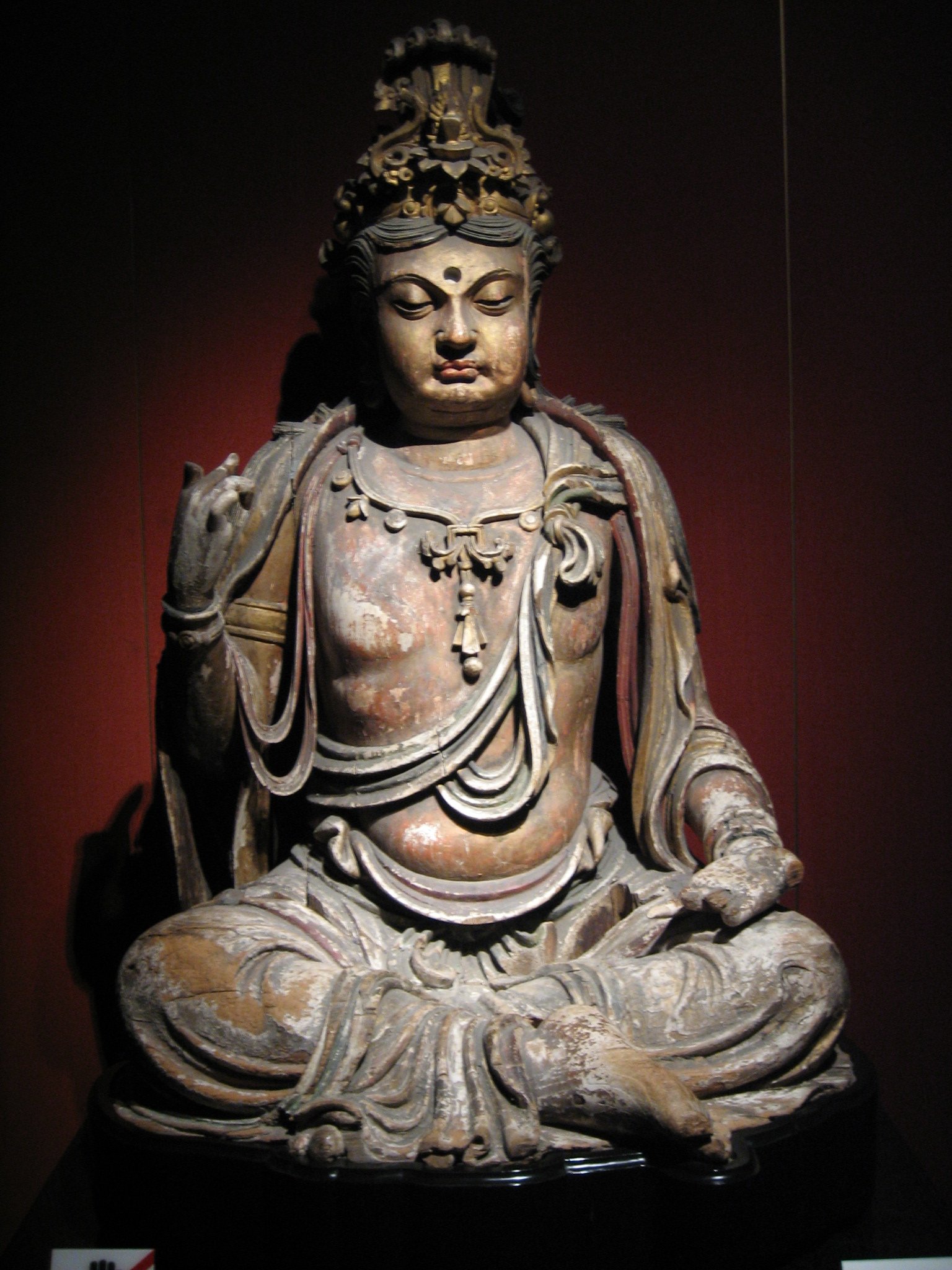|
Tian Xueren
Tian Xueren (born October 1947) is a former Chinese politician who spent most of his career in Northeast China's Jilin province. He was investigated by the Chinese Communist Party's anti-graft agency in July 2012. He served as Communist Party Secretary and President of Jilin Bank from 2007 to 2012, and Executive Vice Governor of Jilin between 2004 and 2008. Life and career Tian was born and raised in Kuandian Manchu Autonomous County, Liaoning. He graduated from Northeast Normal University and Graduate School of Chinese Academy of Social Sciences. He began his political career in October 1958, and joined the Chinese Communist Party in October 1971. He served as Deputy Head of Jilin Provincial Civil Affairs in 1985, and six years later promoted to the head position. In March 1994 he was promoted to become Deputy Communist Party Secretary of Changchun, capital of Jilin province, a position he held until 1997. Then he became the Deputy Communist Party Secretary of Jilin city, ri ... [...More Info...] [...Related Items...] OR: [Wikipedia] [Google] [Baidu] |
Tian (surname)
Tián (), or T'ien in Wade-Giles is a Chinese surname. An alternative transliteration of "田" from Cantonese is Tin, from Hokkien is Thinn. It appeared in the ''Hundred Family Surnames'' text from the early Song Dynasty. It also means "field". In 2019 it was the 34th most common surname in Mainland China. The same character is Jeon in Korean hanja and is 16th most common in South Korea. Origins * perhaps from a fief called Tian (田), which in Old Chinese is pronounced similar to (陳) in Qi state, which was granted to Chen Wan (陳完), a Prince in the State of Chen, who fled to Qi in order to escape persecution. The Qi clan also went on to rule Qi for many generations. * possibly dates even further back to the post name of an official in charge of the management of farmlands who served the Shang dynasty * adopted in place of the Chinese surname Huang (黃) by the son of the official Huang Zicheng during the Ming Dynasty, in order to avoid persecution. Notable people ... [...More Info...] [...Related Items...] OR: [Wikipedia] [Google] [Baidu] |
Jilin
Jilin (; alternately romanized as Kirin or Chilin) is one of the three provinces of Northeast China. Its capital and largest city is Changchun. Jilin borders North Korea ( Rasŏn, North Hamgyong, Ryanggang and Chagang) and Russia (Primorsky Krai) to the east, Heilongjiang to the north, Liaoning to the south, and Inner Mongolia to the west. Along with the rest of Northeast China, Jilin underwent an early period of industrialization. However, Jilin's economy, characterized by heavy industry, has been facing economic difficulties with privatization. This prompted the central government to undertake a campaign called " Revitalize the Northeast". The region contains large deposits of oil shale. Name The name "Jilin" originates from ''girin ula'' () , a Manchu phrase meaning "along the river", shortened to Kirin in English. This Manchu term was transcribed into ''jilin wula'' ( t , s ) in Chinese characters and shortened the first two characters, which ar ... [...More Info...] [...Related Items...] OR: [Wikipedia] [Google] [Baidu] |
Politicians From Dandong
A politician is a person active in party politics, or a person holding or seeking an elected office in government. Politicians propose, support, reject and create laws that govern the land and by an extension of its people. Broadly speaking, a politician can be anyone who seeks to achieve Power (social and political), political power in a government. Identity Politicians are people who are politically active, especially in party politics. Political positions range from local governments to state governments to federal governments to Intergovernmental organisation, international governments. All ''government leaders'' are considered politicians. Media and rhetoric Politicians are known for their rhetoric, as in speeches or campaign advertisements. They are especially known for using common themes that allow them to develop their political positions in terms familiar to the voters. Politicians of necessity become expert users of the media. Politicians in the 19th century made ... [...More Info...] [...Related Items...] OR: [Wikipedia] [Google] [Baidu] |
People's Republic Of China Politicians From Liaoning
People's, branded as ''People's Viennaline'' until May 2018, and legally ''Altenrhein Luftfahrt GmbH'', is an Austrian airline headquartered in Vienna. It operates scheduled and charter passenger flights mainly from its base at St. Gallen-Altenrhein Airport in Switzerland. History Founded as People's Viennaline in 2010, the first revenue flight of the company took place on 27 March 2011. For several years, People's only operated a single scheduled route between its homebase and Vienna. However, the route network has since been expanded with some seasonal and charter services. In November 2016, People's inaugurated the world's shortest international jet route (and, after St. Maarten-Anguilla, second shortest international route overall). The flight from St. Gallen-Altenrhein Airport, Switzerland, to Friedrichshafen Airport, Germany, took only eight minutes of flight over Lake Constance and could have been booked individually. The airline faced severe criticism for this servic ... [...More Info...] [...Related Items...] OR: [Wikipedia] [Google] [Baidu] |
Chinese Academy Of Social Sciences Alumni
Chinese can refer to: * Something related to China * Chinese people, people of Chinese nationality, citizenship, and/or ethnicity **''Zhonghua minzu'', the supra-ethnic concept of the Chinese nation ** List of ethnic groups in China, people of various ethnicities in contemporary China ** Han Chinese, the largest ethnic group in the world and the majority ethnic group in Mainland China, Hong Kong, Macau, Taiwan, and Singapore ** Ethnic minorities in China, people of non-Han Chinese ethnicities in modern China ** Ethnic groups in Chinese history, people of various ethnicities in historical China ** Nationals of the People's Republic of China ** Nationals of the Republic of China ** Overseas Chinese, Chinese people residing outside the territories of Mainland China, Hong Kong, Macau, and Taiwan * Sinitic languages, the major branch of the Sino-Tibetan language family ** Chinese language, a group of related languages spoken predominantly in China, sharing a written script (Chinese ... [...More Info...] [...Related Items...] OR: [Wikipedia] [Google] [Baidu] |
Living People
Related categories * :Year of birth missing (living people) / :Year of birth unknown * :Date of birth missing (living people) / :Date of birth unknown * :Place of birth missing (living people) / :Place of birth unknown * :Year of death missing / :Year of death unknown * :Date of death missing / :Date of death unknown * :Place of death missing / :Place of death unknown * :Missing middle or first names See also * :Dead people * :Template:L, which generates this category or death years, and birth year and sort keys. : {{DEFAULTSORT:Living people 21st-century people People by status ... [...More Info...] [...Related Items...] OR: [Wikipedia] [Google] [Baidu] |
Northeast Normal University Alumni
The points of the compass are a set of horizontal, radially arrayed compass directions (or azimuths) used in navigation and cartography. A compass rose is primarily composed of four cardinal directions—north, east, south, and west—each separated by 90 degrees, and secondarily divided by four ordinal (intercardinal) directions—northeast, southeast, southwest, and northwest—each located halfway between two cardinal directions. Some disciplines such as meteorology and navigation further divide the compass with additional azimuths. Within European tradition, a fully defined compass has 32 'points' (and any finer subdivisions are described in fractions of points). Compass points are valuable in that they allow a user to refer to a specific azimuth in a colloquial fashion, without having to compute or remember degrees. Designations The names of the compass point directions follow these rules: 8-wind compass rose * The four cardinal directions are north (N), east (E), s ... [...More Info...] [...Related Items...] OR: [Wikipedia] [Google] [Baidu] |
Central Commission For Discipline Inspection
The Central Commission for Discipline Inspection (CCDI) is the highest internal control institution of the Chinese Communist Party (CCP), tasked with enforcing internal rules and regulations and combating corruption and malfeasance in the party. Since the vast majority of officials at all levels of government are also Communist Party members, the commission is in practice the top anti-corruption body in China. The modern commission was established at the 3rd Plenary Session of the 11th Central Committee in December 1978. Control systems had existed previously under the name "Central Control Commission" for a brief period in 1927 and again between 1955 and 1968, and under its present name from 1949 to 1955. It was disbanded during the Cultural Revolution in 1969. In 1993, the internal operations of the agency and the government's Ministry of Supervision (MOS) were merged. Although the commission is theoretically independent of the CCP's executive institutions such as the Ce ... [...More Info...] [...Related Items...] OR: [Wikipedia] [Google] [Baidu] |
Changchun
Changchun (, ; ), Chinese postal romanization, also romanized as Ch'angch'un, is the capital and largest city of Jilin, Jilin Province, China, People's Republic of China. Lying in the center of the Songliao Plain, Changchun is administered as a , comprising 7 districts, 1 county and 3 county-level cities. According to the 2020 census of China, Changchun had a total population of 9,066,906 under its jurisdiction. The city's metro area, comprising 5 districts and 1 development area, had a population of 5,019,477 in 2020, as the Shuangyang and Jiutai districts are not urbanized yet. It is one of the biggest cities in Northeast China, along with Shenyang, Dalian and Harbin. The name of the city means "long spring" in Chinese language, Chinese. Between 1932 and 1945, Changchun was renamed Xinjing () or Hsinking by the Kwantung Army as it became the capital of the Imperial Japanese puppet state of Manchukuo, occupying modern Northeast China. After the Proclamation of the founding of th ... [...More Info...] [...Related Items...] OR: [Wikipedia] [Google] [Baidu] |
Communist Party Secretary
A Party Committee Secretary () is the leader of the Chinese Communist Party (CCP) organization in a province, city, village, or other administrative unit. In most cases, it is the ''de facto'' highest political office of its area of jurisdiction. The term can also be used for the leadership position of CCP organizations in state-owned enterprises, private companies, foreign-owned companies, universities, research institutes, hospitals, as well as other institutions of the state. Post-Cultural Revolution, the CCP is responsible for the ''formulation'' of policies and the government is responsible for its day-to-day ''execution''. At every level of jurisdiction, a government leader serves alongside the party secretary. For example, in the case of a province, the provincial Party Secretary is the ''de facto'' highest office, but the government is headed by a government leader called a "Governor" (). The Governor is usually the second-highest-ranking official in the party's Provinci ... [...More Info...] [...Related Items...] OR: [Wikipedia] [Google] [Baidu] |
Northeast China
Northeast China or Northeastern China () is a geographical region of China, which is often referred to as "Manchuria" or "Inner Manchuria" by surrounding countries and the West. It usually corresponds specifically to the three provinces east of the Greater Khingan Range, namely Liaoning, Jilin, and Heilongjiang, but historically is meant to also encompass the four easternmost prefectures of Inner Mongolia west of the Greater Khingan. The heartland of the region is the Northeast China Plain, the largest plain in China, with an area over . It is separated from Russian Far East to the north by the Amur, Argun, and Ussuri rivers; from Korea to the south by the Yalu and Tumen Rivers; and from Inner Mongolia to the west by the Greater Khingan and parts of the Xiliao River. Due to the shrinking of its once-powerful industrial sector and decline of its economic growth and population, the region is often referred to as China's Rust Belt. As a result, a campaign named Nort ... [...More Info...] [...Related Items...] OR: [Wikipedia] [Google] [Baidu] |

.jpg)

